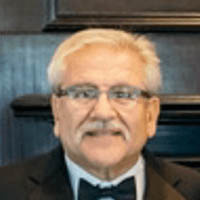Monroeville Felony Lawyer, Pennsylvania
Sponsored Law Firm
-
 x
x

Click For More Info:
-
Law Office of Mark S. Guralnick
55 Madison Avenue 4th Floor Morristown, NJ 07960» view mapCriminal Defense Law Dedicated. Fearless. Successful.
Mark S. Guralnick and his legal team have helped clients throughout the USA and across the world by applying unparalleled dedication and hard work to each case.
800-399-8371
Not enough matches for Monroeville Felony lawyer.
Below are all Monroeville Criminal lawyers.
Anthony Lewis Rosner
✓ VERIFIEDAccident & Injury, Criminal, Divorce & Family Law, Employment, Estate
On April 12, 2000, Attorney Rosner, upon his admission to the Bar of the State of Pennsylvania, opened his private practice as a sole practitioner and... (more)
Jeffrey S. Weinberg
✓ VERIFIEDCriminal, Accident & Injury
Jeffrey Weinberg is a practicing lawyer in the state of Pennsylvania. Mr. Weinberg received his J.D. from Duquesne University.
Richard J. Catalano
Divorce & Family Law, Felony, Criminal, Accident & Injury
Status: In Good Standing Licensed: 54 Years
Lexington Wolff Rykaczewski
Lawsuit & Dispute, Criminal, Business
Status: In Good Standing Licensed: 13 Years
Kenneth D Lewis
Domestic Violence & Neglect, Criminal, Merger & Acquisition
Status: In Good Standing Licensed: 99 Years
Frankie Carle Walker
Other, Mass Torts, Criminal, Accident & Injury
Status: In Good Standing Licensed: 19 Years
Bruce W. Blissman
Commercial Real Estate, Criminal, Bankruptcy
Status: In Good Standing Licensed: 36 Years
James A. Crosby
Traffic, Litigation, Transportation & Shipping, Criminal
Status: In Good Standing Licensed: 26 Years
 Mark Guralnick Morristown, NJ
Mark Guralnick Morristown, NJ AboutLaw Office of Mark S. Guralnick
AboutLaw Office of Mark S. Guralnick Practice AreasExpertise
Practice AreasExpertise


